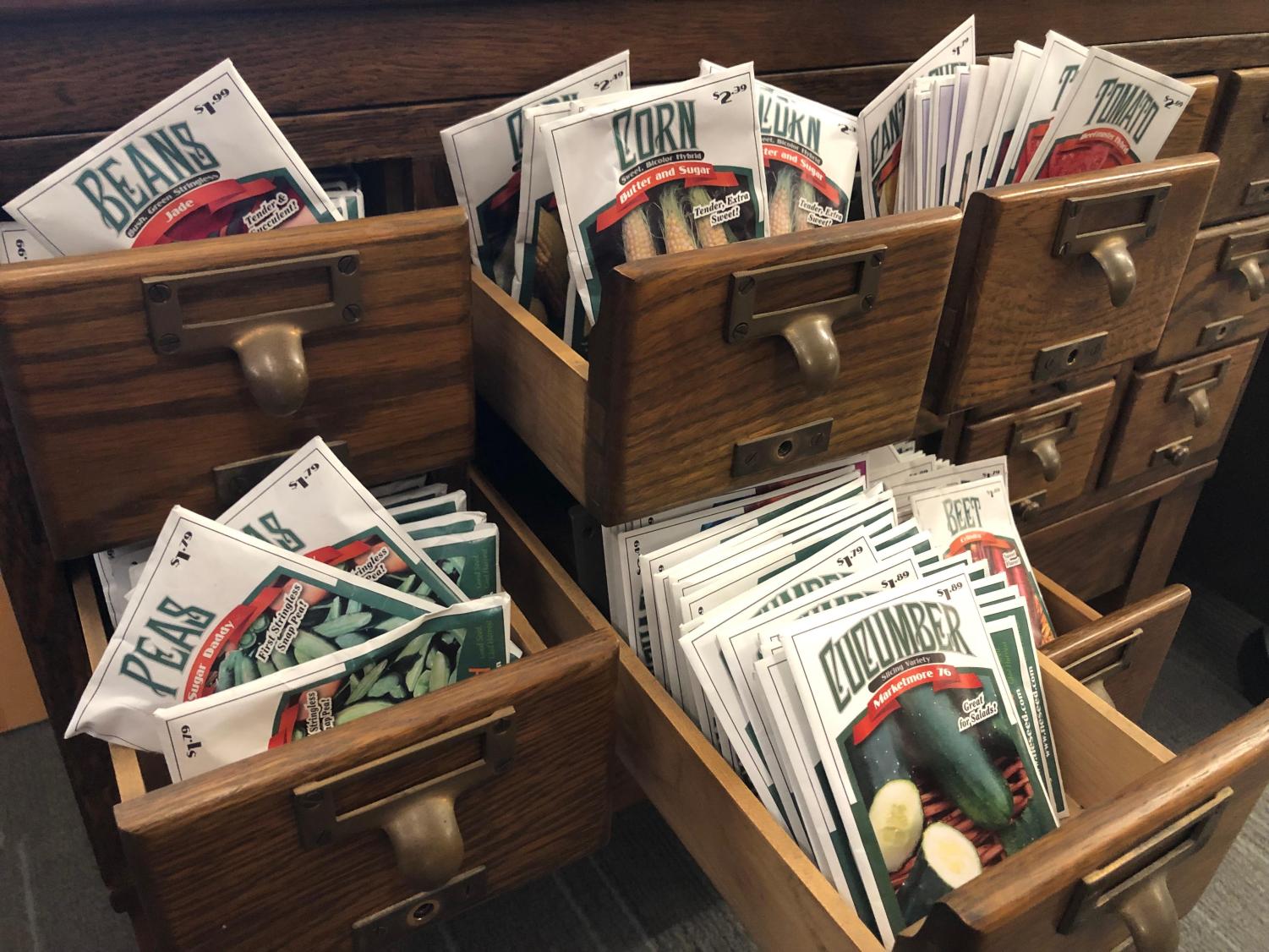College prepares for launch of seed exchange
October 26, 2022

This spring, the College’s library system will unveil a seed exchange program, a collection of various seeds that will be free for students, faculty, and staff to access for personal use. “I am hoping that we launch it, and then students, faculty, and staff — the whole community — just take it and do what they want to do with it,” Head of Access Services Nadine Nance said.
In preparation for the launch of the program, Nance has collected roughly 200 seed varieties from community members and local farms, such as Soul Fire Farm in Petersburg, N.Y., and Whitney Farm in Cheshire, Mass. The circulation desk at Sawyer Library is also looking to collect donations of seeds from students, faculty, and staff, Nance said. Though community donations thus far have been limited, Nance has started spreading the word about the library through the Zilkha Center’s virtual newsletter and the College’s Daily Messages. In the spring, community members will find the seeds organized into packets labeled with the seed type and date of donation, though the location of the catalog itself has yet to be determined.
“The hope is to share the stories behind the seeds — who donated it, which farm it came from — to support opportunities for knowledge-sharing and community-building through the project,” Zilkha Center Sustainability Coordinator Christine Seibert wrote in an email to the Record.
The idea for a seed exchange initially came from alum Nasir Grissom ’22, who was involved in the College’s community garden, and Director of Libraries and co-Chair of the Garden Steering Committee Jonathan Miller. Since then, Nance has worked alongside Seibert and Zilkha Center Deputy Director Mike Evans to organize the program, Nance said.
As inspiration for the structure of the exchange, Nance will be visiting the seed library at the University of Massachusetts Amherst in November. “I’ll see how they got past all the bumps and how they have gotten [the library] to be something that is pretty self-sufficient,” she said.
Nance said she hopes that once the project has begun, community members will sustain the collection by donating seeds harvested from crops grown from the library’s initial collection.
There are many benefits to this type of generational exchange model, Josh Lipp ’24, who works at the College’s community garden, told the Record. “When you grow something in a specific place, it adapts to that climate and puts it into the next generation of the seed,” he said. “Then, when you grow that seed the next year, it knows the environment already in the soil.”
This method of adaptation is specifically useful for those that have plots in the College’s community garden, like Riku Nakano ’25. If gardeners obtain locally harvested seeds from the exchange, they will not have to work as hard to get the seeds to grow in the climate of Williamstown, Nakano said.
In addition to ecological advantages, the practice of seed-saving incorporates aspects of environmental sustainability that the Zilkha Center strives to promote. “We also see this as an opportunity to advance [Diversity, Equity, and Inclusion] and environmental justice by providing our community the resources — seeds through this project, and plots via the community garden — to practice food sovereignty, especially through culturally relevant foods,” Seibert wrote.
Nakano also said she believes the program will inspire others on campus to start gardening. “When we’re keeping seeds and when we have seed swaps or share seeds, it makes gardening much more accessible,” she said.
To Nance, the spread of knowledge and access to gardening lie at the heart of this project. “We are well-positioned to instill a love for gardening in our students,” she said, “When they leave here, wherever they go, wherever they came from, they can take this understanding with them and perhaps to their communities.”








